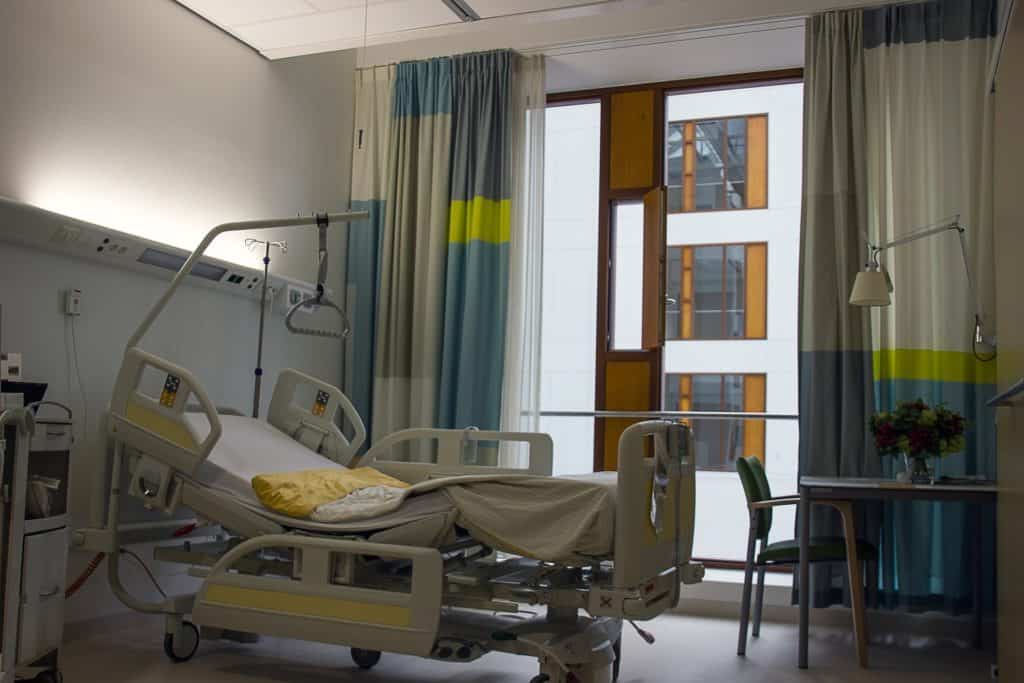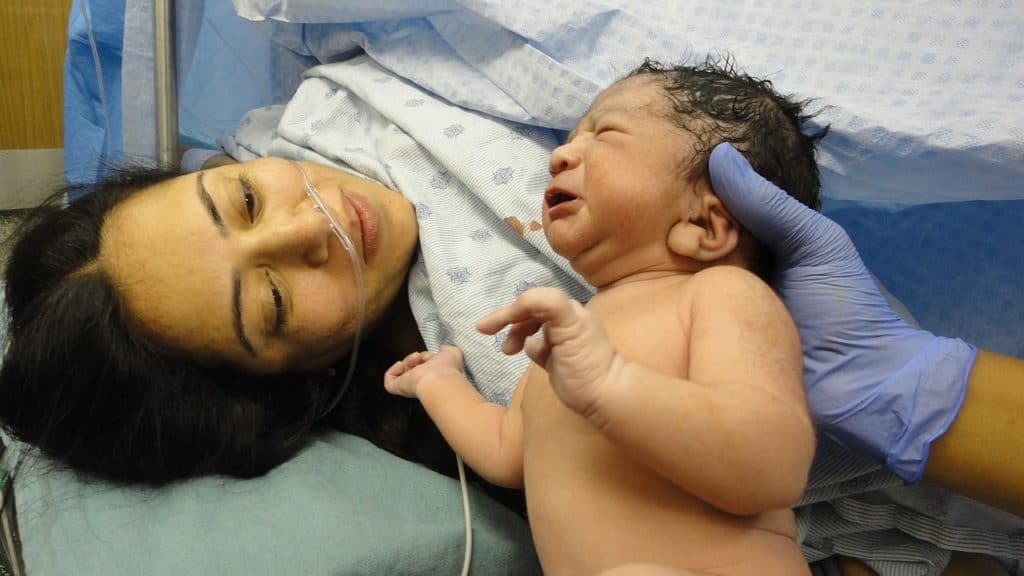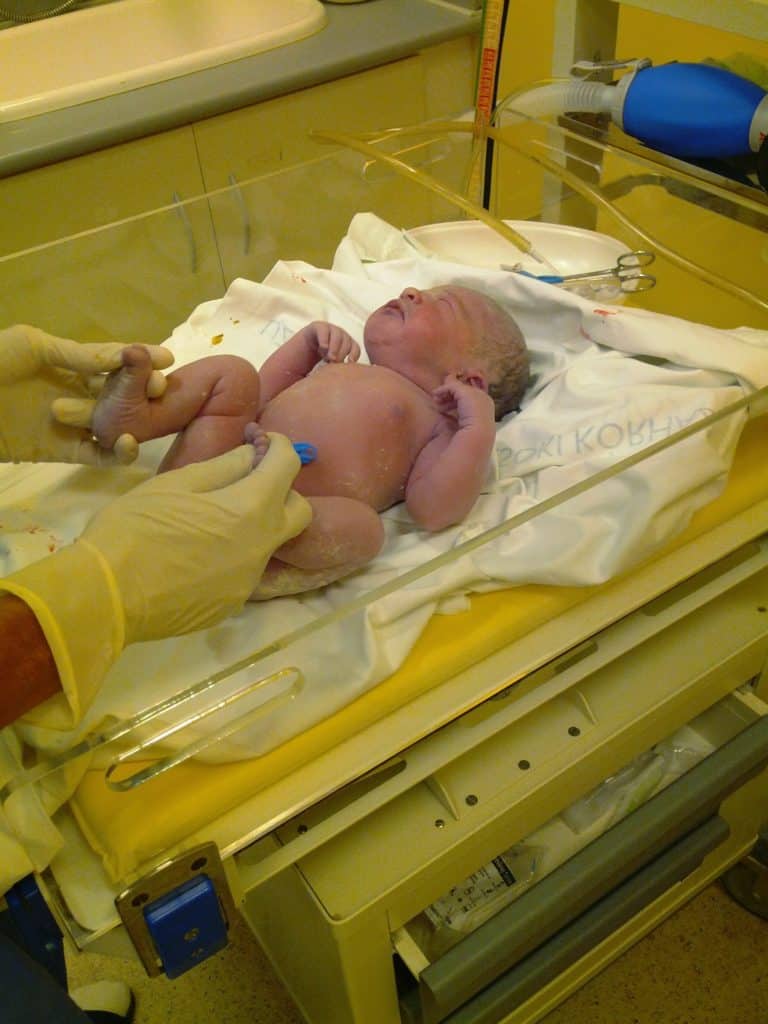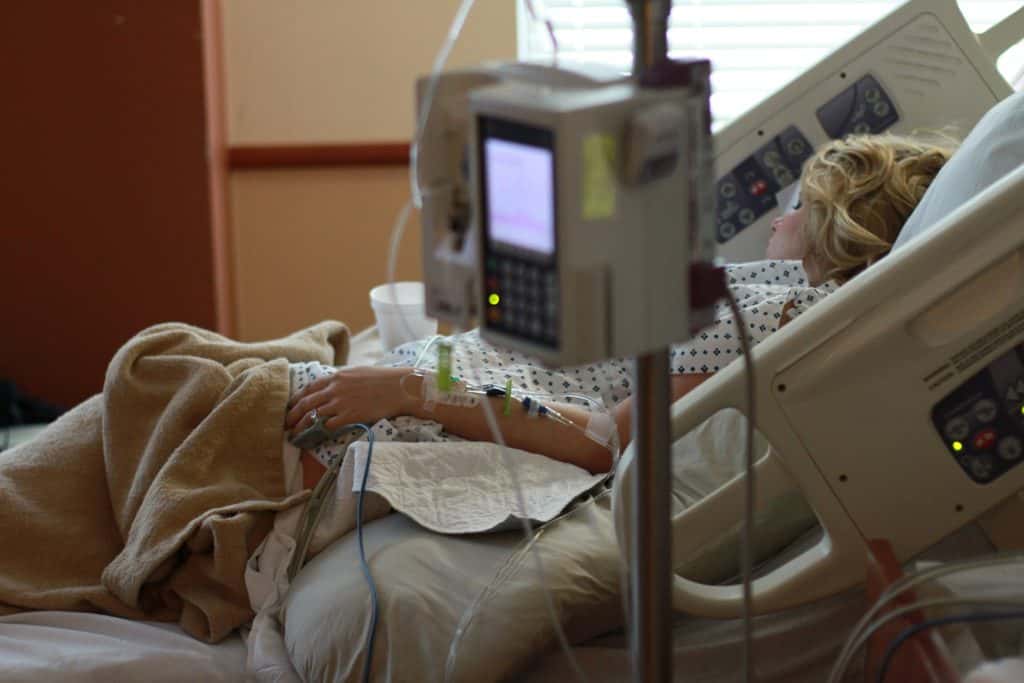When my first child was 2 months, we left sunny California to return to vibrant but smoggy Hong Kong. I’d spent the better part of the prior decade there, chasing dreams and stashing away cash for a return to the states.
Giving birth in Hong Kong had been an option, and we’d had friends spend less than $40 USD to give birth in public hospitals there, epidural included. The standard of care in public systems was top notch.
Choosing private care would perhaps have been more customized, for example with private rooms for mom and baby. The view from the Matilda Hospital on the peak actually rivals vacation resorts.

Maternity Health Insurance
Insurance agents explained that Hong Kong has the 2nd most expensive private healthcare costs behind the US. Some of the most expensive real estate in the world plus influxes of pregnant Chinese mainlanders may have something to do with that.
When we decided to move, it was also too late for us to buy maternity coverage. Internationally, insurers are not forced to cover pregnant women, because public systems allow women to give birth affordably and safely. The waiting period for coverage was at least 10-12 months, so if anything it would only cover the next baby.
We ultimately bought insurance with maternity coverage through IHI Bupa, where coverage amounts were typically around 100%. AXA and Cigna were a few other viable options.
Internationally I had to submit my own insurance claims, but the online portals were user friendly.
When we moved to Korea and Taiwan later, my maternity care was covered by Integra Global, though when the policy was underwritten by Lamp Insurance, trying to make claims was quite a nightmare.

Travel Insurance While Pregnant
Most travel insurance will not cover maternity related emergency care during travel. Ihi Bupa was one of the few exceptions. For example:
6.5: The insurance shall cover expenses for medical assistance in case of any sudden and unforeseen illness and/or complication in connection with maternity until and including the 8th month (36th week) of pregnancy, however only until and including the 4th month (18th week) of pregnancy when the pregnancy is the result of fertility treatment and/or the insured is expecting more than one child, cf. also Art. 23.1 7).
World Nomads travel insurance also is supposed to have pregnancy coverage. It’s always best to explicitly ask and check the fine print of the policy.
Figuring out when to try for a baby is one of those “choices” that has the modern woman scrambling to be strategic. Families are having kids later, even just in the last 40 years.
According to the National Center for Health Statistics, as of 2016, the average age to first have a baby in the U.S. was 26.3 years. In 1980, around the time this generation of millennials was born, that average was 22.7 years.
Women, shouldering more of housework and childcare, lack the support needed to affordably have a child. Pushing back timelines for having children is a logical choice.
Trying To Get Pregnant In Korea
As women have children later, fertility naturally declines on average. In her best selling book Becoming, Michelle Obama first shares publicly her own struggle with infertility and using IVF (in-vitro fertilization) to conceive.
I remember sitting around a table of high achieving career focused women, half of whom were trying IVF. The process can be quite lengthy, with the women giving themselves hormone shots, followed by implantation of embryos.
Standards vary by country, for example in Australia no more than 2 embryos can be implanted at once, while in Korea it’s fairly standard to implant 3 embryos at a time. The chance for multiple birth is higher, which is riskier for the pregnancy as well.
IVF is not the only area where standards differ. Doctors are not legally allowed to disclose the gender of the baby until 33 weeks, to prevent any gender bias. The idea that the law still might need to stave off any bias is pretty shocking. Maybe it should come as no surprise that South Korea ranks at the bottom among developed countries in gender equality.

Pregnancy In Taiwan
Taiwan is a notoriously kid friendly place, where restaurants are stocked with baby utensils and plates, and both private and public restrooms typically have baby sized toilets. In case you haven’t noticed you will almost never find a kids sized toilet in the US, unless you’re literally at a preschool.
I’d confirmed my pregnancy at home, so I scheduled a doctor’s visit around 8 weeks. The heartbeat typically can be found by 7-8 weeks, so I figured it was a good time to confirm a viable pregnancy. The doctor seemed somewhat surprised to see me, and apparently in Taiwan the first typical doctor’s appointment is at 12 weeks.
Given how affordable healthcare is in Asia, I’d expected to do an ultrasound as well, so I’d excitedly brought my husband for our first peek. Instead, for the five minute visit, the doctor said “it wasn’t convenient” to have my husband in the ultrasound room and refused his right to see our little baby. Protesting got us nowhere, and we walked away a bit disgruntled.
One of the few upsides was that the total bill was 500 TWD (less than $17 USD), even without insurance assistance which I had to submit claims for manually.
The Surprise Diagnosis
At my first visit, I’d laughed a bit at the doctor labeling me an “older mom”, but I guess being over 35 is widely considered advanced maternal age. I’d figured while I was abroad and had maternity cover I might as well go for prenatal genetic testing. The NIPT is the non-invasive prenatal blood test, which is done around 12 weeks.
Before getting the blood test I got an ultrasound with the technician. I’d gone to the Taipei Veterans hospital this time, and they had no problem letting my husband in. Then the technician made a few comments about the baby, followed by typing “cystic hygroma” on the ultrasound. I asked her what it meant and she said the doctor would explain.
I tried not to react, telling myself it was likely nothing. But in the 20 minutes where we waited in the hallway for the doctor, I caved and pulled out my phone to consult Dr. Google. The prognosis was grim, foreshadowing 60-90% fatality rates. I barely noticed the associated possibility of a chromosomal abnormality and all the while tried to stay calm.
Cystic hygroma was essentially extra fluid retention, which our baby had around various parts of the body. The doctor recommended skipping the blood test and going straight for one of the diagnostics tests, either the CVS or amniocentesis, which would be more conclusive. The CVS could be done slightly earlier, and we opted for that, though we’d have to visit a different doctor.

Missing Bedside Manner
Visiting the doctor for the CVS required a multi hour wait where my husband fell asleep and I tried to read, absent mindedly. The nurse immediately said that for the size of the hygroma, they generally recommend termination. That statement was backed by about as much explanation and tact as telling a patient to go get their blood drawn, and I tried to shake it off.
The CVS involved getting a sample of the placenta and testing the genetic material. It’s considered highly accurate.
When I got the test results from back, it was via a phone call from the nurse. Her first comment, after confirming my identity, was that I couldn’t have the baby – he had down syndrome.
It took time to process the news. Acceptance didn’t come easy and still is a work in progress. I also don’t mention this experience as a means of judgement. Different cultures have different approaches and Asian cultural is historically more communal and tries to keep in mind what works for society as a whole.
Also it surprised me to note that this type of response is not uncommon in the Western world either. From what I’ve seen the majority of prenatal diagnosis of a chromosomal abnormality result in early termination, regardless of culture.
Tips For Being Pregnant On The Road
Being pregnant on the road may not pan out the way you expect. Parenting throws the most organized parents out of the loop anyway. The only major tips I’d recommend for being pregnant on the road are:
- Understanding your medical options
- Having insurance coverage or comfort with public systems
- Travel insurance with pregnancy coverage for trips
- Understanding of differing guidelines from what you may be used to
Having a baby is one of the most universal occurrences that medical systems take care of. If you’re fairly relaxed about the pregnancy stage, it can be done in any country smoothly. Even with a high risk pregnancy like mine, I was fairly comfortable getting medical care abroad.
Of course having a plan for where you want to deliver is important, which I ultimately decided by around 5 months of pregnancy.

I was a bit more relaxed even though it was a “high risk” pregnancy because it was my 2nd child, and I don’t have any real health issues. The risk was mostly in that there was a higher chance of miscarriage, but I was never far away from quality medical care.


Pingback: International And Domestic Geo Arbitrage: Critical Decision Points - FamilyFI Life